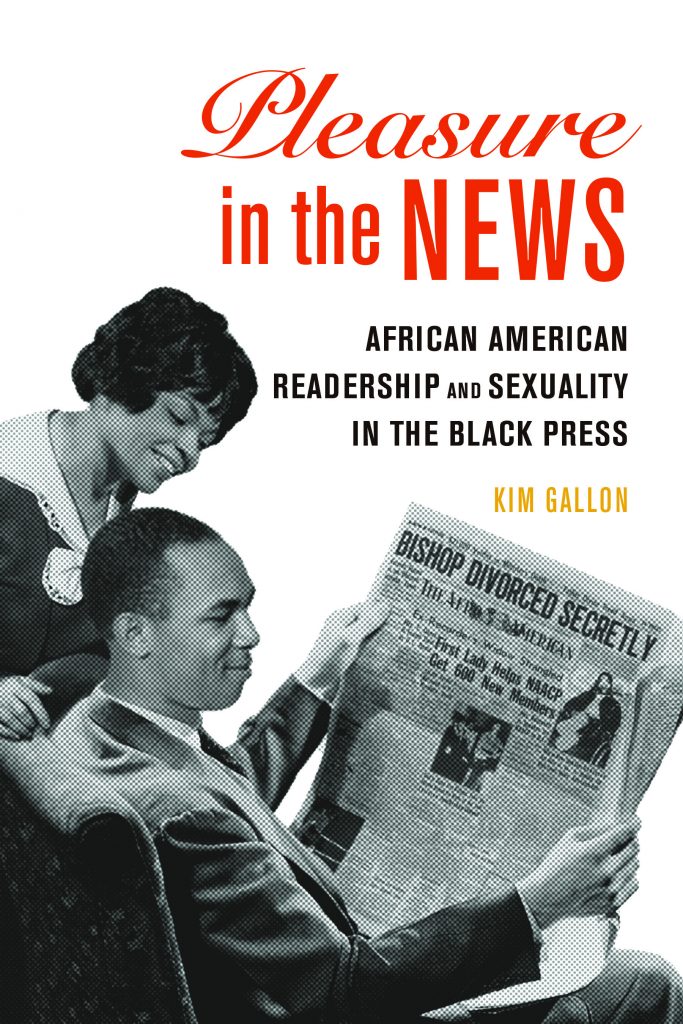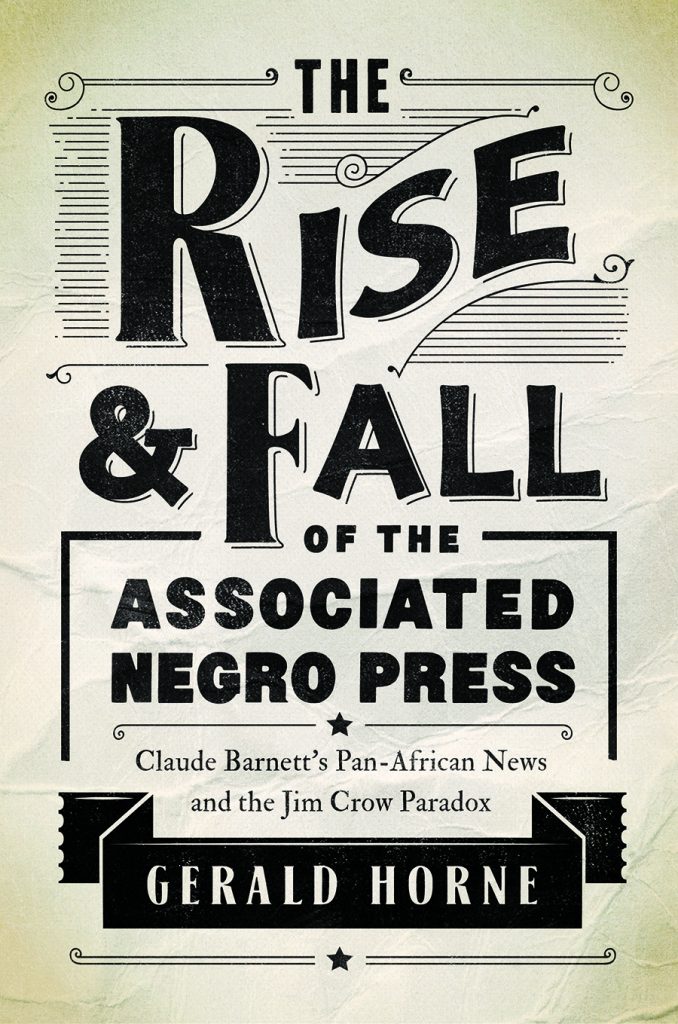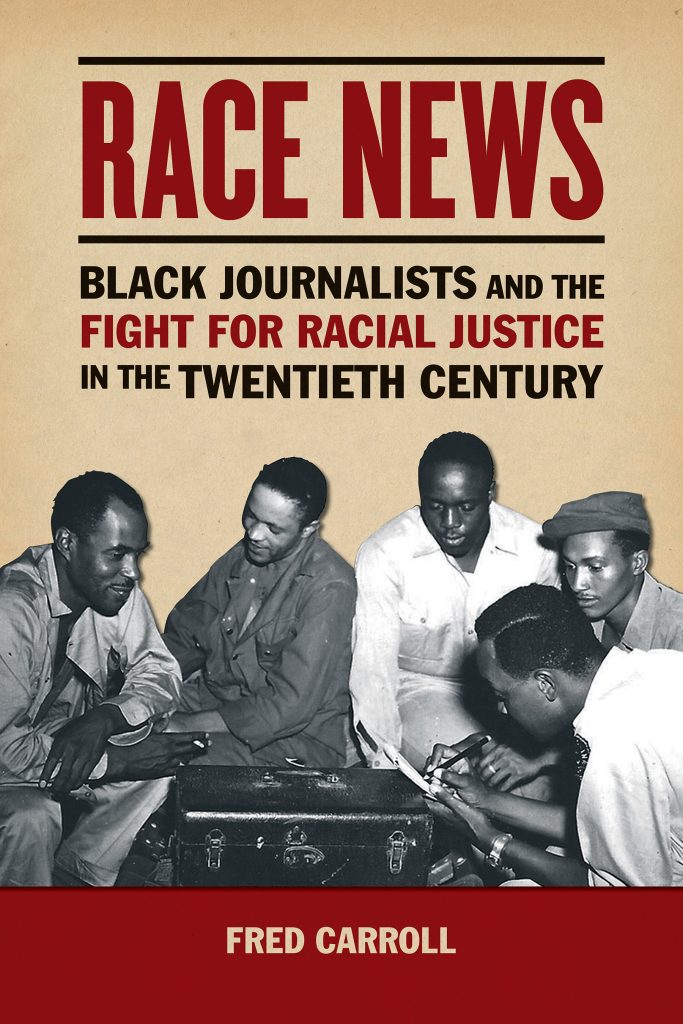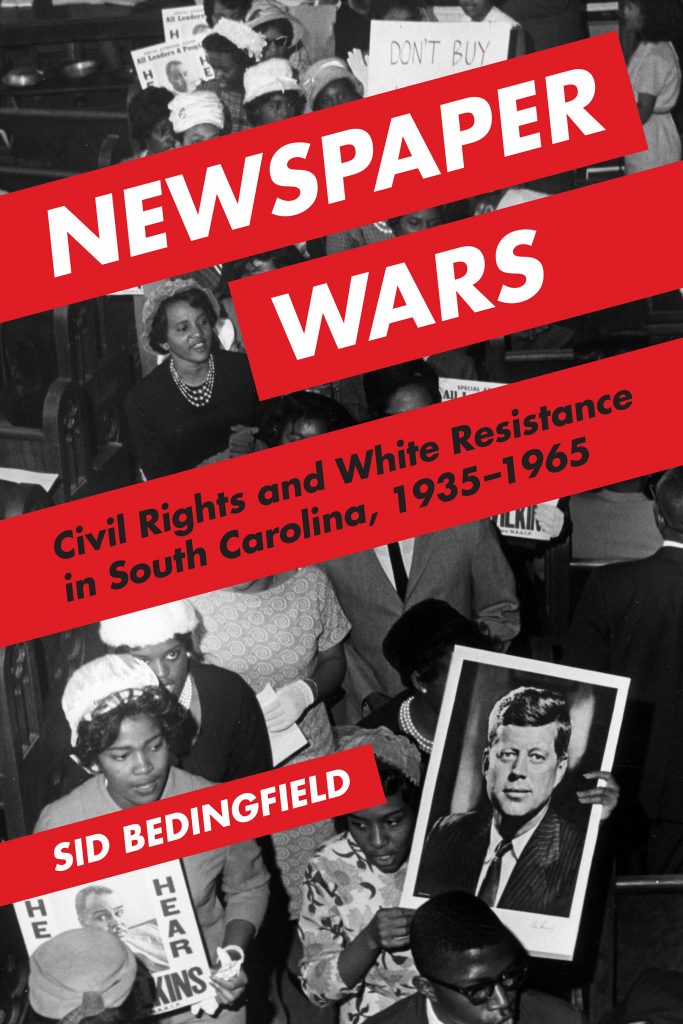In honor of Black History Month, we have put together a round up of some of our recent and forthcoming titles on the history of the Black press in the United States. This spring, we’re delighted to add E. James West’s book on Ebony and Kim Gallon’s book on Black readership and sexuality in the Black press to our list. Check out these books and articles below and learn more about the significance of the Black press in shaping our media consumption today!

Ebony Magazine and Lerone Bennett Jr.: Popular Black History in Postwar America
By E. James West
Ebony Magazine has played an important role in educating millions of African Americans about their past. Guided by the pen of Lerone Bennett Jr., the magazine’s senior editor and in-house historian, Ebony became a key voice in the popular black history revival that flourished after World War II. Its content helped push representations of the African American past from the margins to the center of the nation’s cultural and political imagination.

Pleasure in the News: African American Readership and Sexuality in the Black Press
By Kim Gallon
Critics often chastised the twentieth-century black press for focusing on sex and scandal rather than African American achievements. Gallon takes an opposing stance—arguing that African American newspapers fostered black sexual expression, agency, and identity. Informative and empowering, Pleasure in the News redefines the significance of the black press in African American history and advancement while shedding light on the important cultural and social role that sexuality played in the power of the black press.
Coming in May 2020

By Gerald Horne
Claude Barnett, founder of the Chicago-based Associated Negro Press (ANP), was one of the most influential African Americans of his day. Horne weaves Barnett’s life story through a groundbreaking history of the ANP, including its deep dedication to Pan-Africanism. Yet Horne also confronts Barnett’s contradictions. A member of the African American elite, Barnett’s sympathies with black aspirations often clashed with his ethics and a desire to join the upper echelons of business and government.

An Idea Before Its Time: Charles S. Johnson, Negro Columnist
Journal of Civil and Human Rights
Vol. 4, No. 2 (Fall/Winter 2018)
By Gwyneth Mellinger
In the mid-1940s, Claude Barnett of the Associated Negro Press developed a proposal for Fisk University sociologist Charles S. Johnson to write a weekly column for daily newspapers. Had the plan succeeded as they imagined, Johnson’s column, titled “A Minority View,” would have integrated the opinion pages of the white press. This paper documents the three-year history of the column, which had the indirect backing of the General Education Board, a Rockefeller-endowed philanthropy.

Race News: Black Journalists and the Fight for Racial Justice in the Twentieth Century
By Fred Carroll
Once distinct, the commercial and alternative black press began to cross over with one another in the 1920s, sparking disputes over radical politics that altered news coverage of some of the most momentous events in African American history. Carroll traces how mainstream journalists incorporated coverage of the alternative press’s supposedly marginal politics of anticolonialism, anticapitalism, and black separatism into their publications.

Newspaper Wars: Civil Rights and White Resistance in South Carolina, 1935-1965
By Sid Bedingfield
Newspaperman John McCray and his allies at the Lighthouse and Informer challenged readers to “rebel and fight”–to reject the “slavery of thought and action” and become “progressive fighters” for equality. Moving the press to the center of the political action, Bedingfield tells the stories of the long-overlooked men and women on the front lines of a revolution. African American progress sparked a battle to shape South Carolina’s civic life, with civil rights activists arrayed against white journalists determined to preserve segregation through massive resistance.
